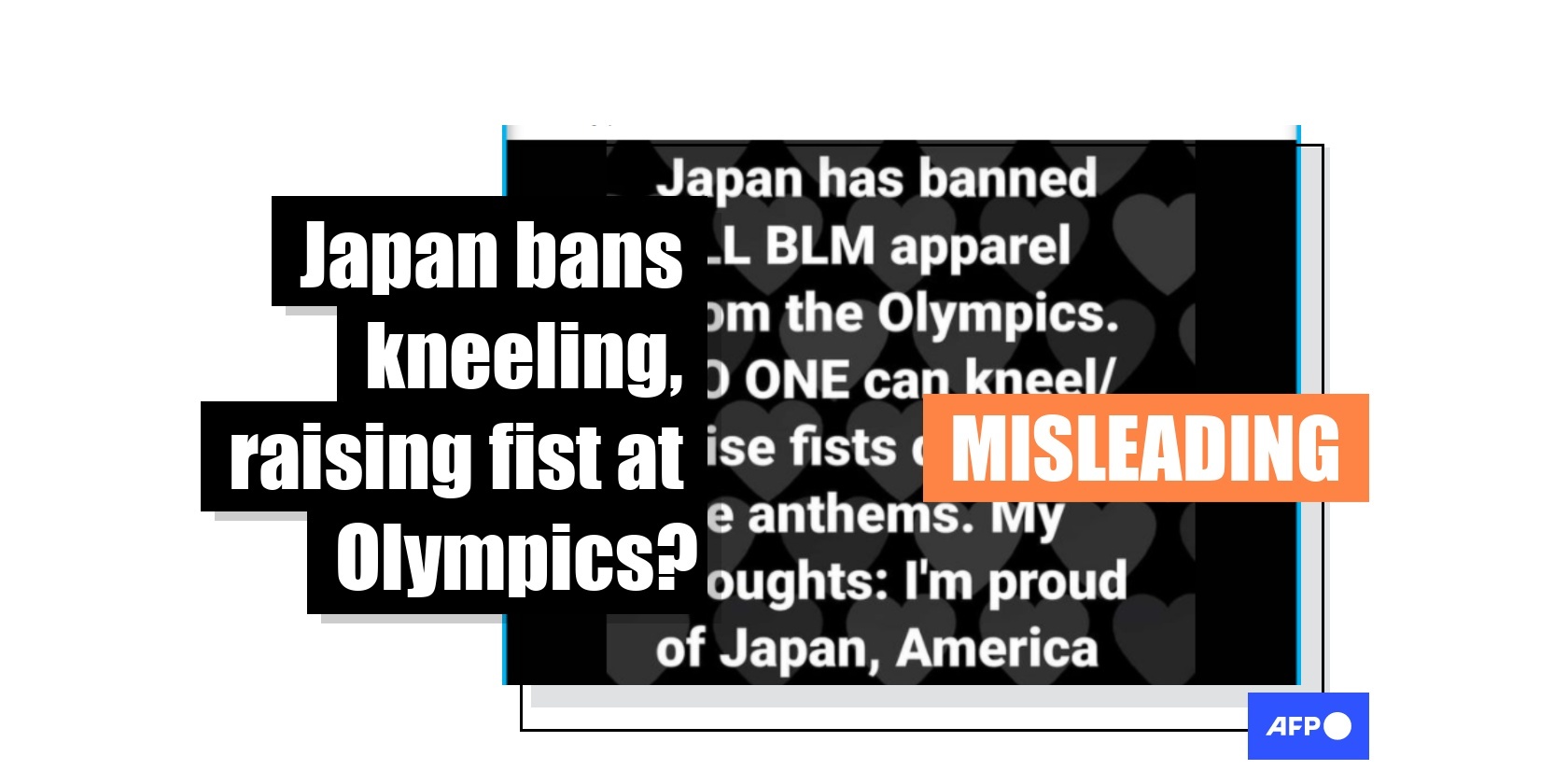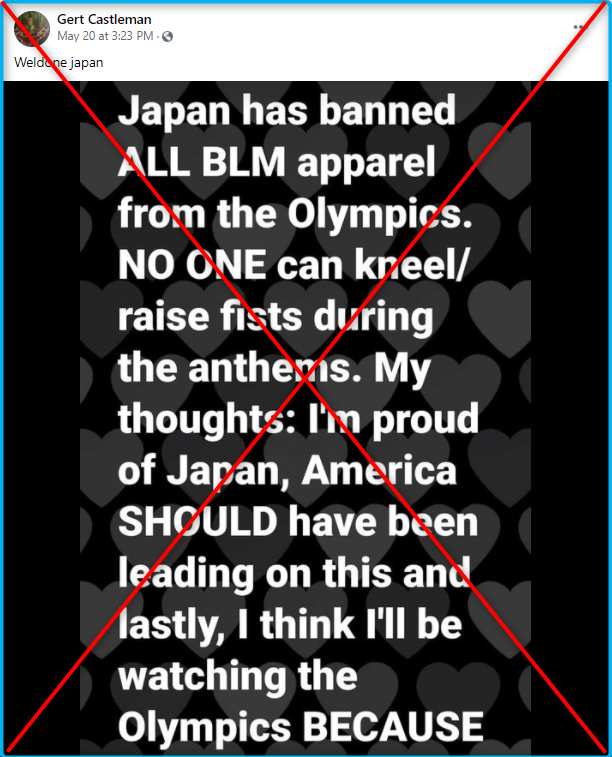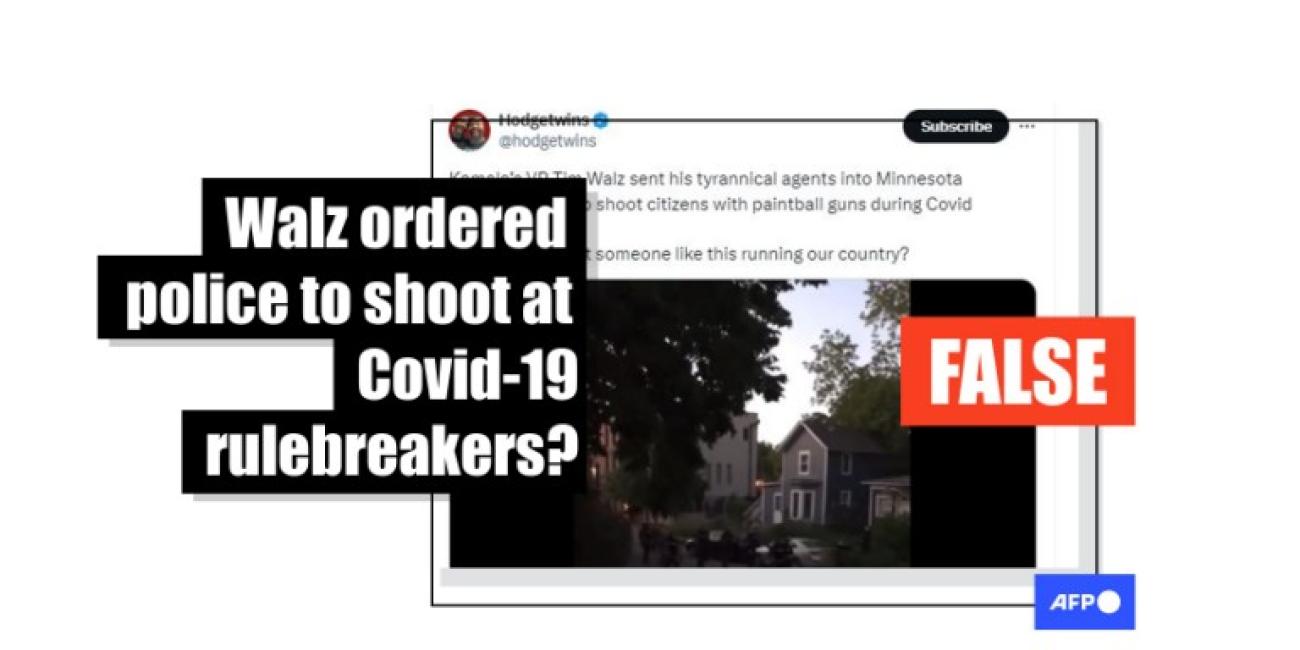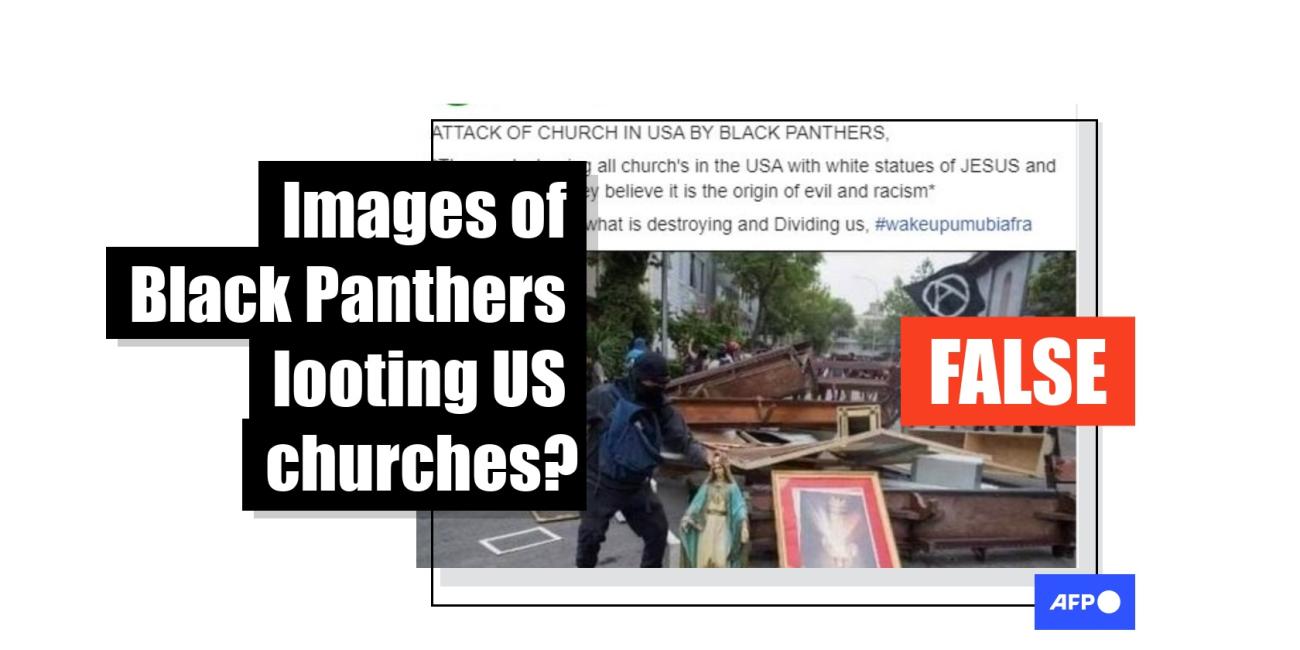
IOC, not Japan, bans political protests like kneeling at Tokyo Olympics
- This article is more than four years old.
- Published on May 24, 2021 at 18:36
- 1 min read
- By James OKONG'O, AFP South Africa
The post has been shared more than 300 times since it was published on Facebook on May 20, 2021.

Screenshot of the misleading post, taken on May 24, 2021
“Japan has banned ALL BLM (Black Lives Matter) apparel from the Olympics. NO ONE can kneel/raise fists during the anthems. My thoughts: I’m proud of Japan, America SHOULD have been leading on this and lastly, I think I’ll be watching the Olympics BECAUSE of this (sic),” the post reads.
But the claim is misleading.
IOC's Rule 50
It is not host country Japan that implemented the ban, but rather the IOC that forbids all political displays at any Olympic sites or venues.
The IOC is the governing body of the Olympic Movement and has a membership of over 200 countries. Its Olympic Charter features the rules and bye-laws adopted by the IOC, and governs the running of the Olympic Games.
This includes Rule 50, which aims to provide a framework to protect the neutrality of sport and the Olympic Games.
In January 2021, the IOC’s Athletes Commission released tougher guidelines regarding Rule 50. As reported by AFP, athletes will be barred from protesting on podiums during the Olympic Games.
The rule forbids any “demonstration or political, religious or racial propaganda” at Olympics venues, including playing fields, the Olympic Village, and all official ceremonies. Banned gestures include raising a fist, taking a knee and wearing armbands and signs with political messaging.
The guidelines state that athletes who break the rules at the Tokyo Games could face up to three rounds of disciplinary action.
Japan was originally set to host the Olympic Games in July 2020, but the games were postponed to July 2021 because of the Covid-19 pandemic.
Copyright © AFP 2017-2026. Any commercial use of this content requires a subscription. Click here to find out more.
Is there content that you would like AFP to fact-check? Get in touch.
Contact us




